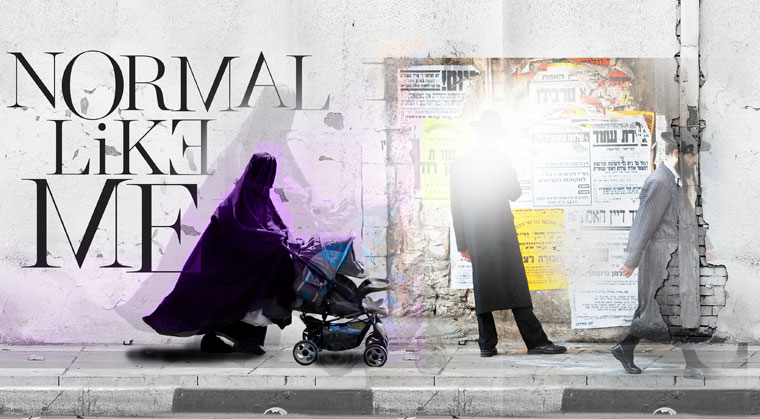Normal Like Me: Chapter 37

He certainly never meant to become public enemy number one by ruining the whole Aravah. He wasn’t trying to hurt anyone

Thursday, 12 Kislev 5775
Sarah:
I
t was morning. I opened the little container of jam on my breakfast tray and scraped every bit of it into my leben, stirring the sweetness in. Life looked so good that I couldn’t understand what I’d been crying about during the night.
Only a week ago, all the newspapers had been busy with me, and now they’d forgotten me and moved on to the next victim. The nurses were talking about an ecological disaster, the biggest one ever to happen in Israel, and I realized that no one was interested in me anymore. Actually, I realized, they hadn’t ever been interested in me in the first place. All they wanted was something sensational to report, all those news people who came here to interview me (I kicked them all out) — the same ones, no doubt, who were busy the week before spreading lies about Faigy’s poor brother.
They were never really talking about me, or even thinking about me. All they wanted was “a Shawl Lady who got shot” or “a bristly older single who planned a revenge attack against Arabs” to serve up to the public as their daily fare. Who I really am, what I feel, or what I want was never part of the story — and for some reason, that made me feel better. It wasn’t that I, personally, had been pilloried and held up to public scorn. It was never about me, the person. It was about the weekly scapegoat for a public always seeking someone to blame, someone to shame, someone to storm and rage at as the source of all of our problems.
So the new guilty party was somebody or something called Katza’a. The nurses’ station was close to my room, and I kept hearing them yelling the word again and again. When they came to take my temperature, I asked them who it was. It turned out it was the name of a company, the Eilat-Ashkelon Pipeline Company, if you spell it all out. “They’re a semi-secret, government-owned crude oil company,” Betty said. “They do whatever they want, those people, with no accountability to the public.”
“Last night there was a big oil spill,” another nurse explained. “Those monsters from Katza’a ruined the entire southern Aravah. Thousands of cubic meters of crude oil are flowing all over, killing all the vegetation and wildlife, and nobody can stop it.”
“Did anyone die?” I asked.
“You mean people? No. Only animals.”
But later, I heard them talking about dozens of people down in the Aravah, and across the border in Jordan, who were taken to hospitals with respiratory problems. So people were paying the price.
Actually, one person had been paying the price right from the start. Maybe he was a pipeline engineer (was there such a thing?), maybe just someone they hired as a contractor. All he wanted was to do his job and bring home some money. Maybe he had kids at home… two rambunctious boys, maybe a sweet little girl…. Maybe they’d been sleeping, knowing that their Abba was working overnight and would come home tired after a full night of work.
One thing I knew with certainty: He certainly never meant to become public enemy number one by ruining the whole Aravah. He wasn’t trying to hurt anyone. Something must have gone wrong. His tractor hit a pipe, or the connection he welded wasn’t strong enough.
Now, the whole country was talking about his negligence with bitter hatred. I could see it in their eyes. They hated someone they’d never even heard of until today.
(Excerpted from Mishpacha, Issue 703)
Oops! We could not locate your form.



